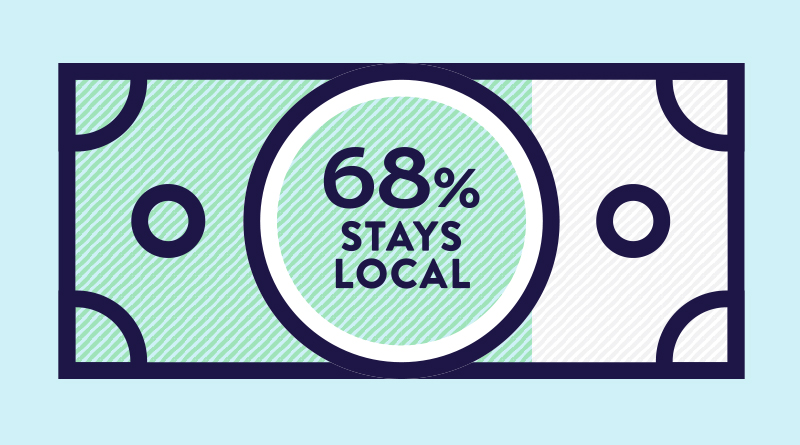ENJOY THE ECONOMIC BENEFITS
When you spend your money with local businesses, you help pump money back into the local economy through taxes, payroll, and purchases. This means more money for our roads, education, health and wellness resources, other services, new jobs, libraries, and more. Most local business owners agree that money made in our community should stay in our community.
YOUR MONEY, YOUR COMMUNITY
For every $100 spent locally, at least $68 of that stays in the local economy. That means each dollar you spend at an independent business returns three times more money to your local economy than a dollar spent at a national chain. – Source: “The Multiplier Effect of Local Business Ownership” by consulting firm Civic Economics
THE IMPACT OF FRANCHISES
Franchises are a very important contributor to the economy in Indiana. As a result of the franchise business model, 16,506 local businesses provide 189,000 jobs to the Indiana economy and account for $14.5 billion of the state’s economic output, and $5.4 billion of private sector payroll. * Economic Impact of Franchised Businesses, Vol IV, Sept. 2016
CONNECT WITH NEIGHBORS
Buying local connects producers and consumers in a way that national companies just can’t. Local ownership means roots in the community and influence in decisions affecting our lives and our local environment. The stronger the relationship between our residents and our job creators, the greater the opportunity for healthy, vibrant communities.
SUPPORT A HEALTHIER ENVIRONMENT
Independent, locally owned businesses typically consume less land, carry more locally-made products, and are located closer to their customers creating less traffic and air pollution. –Source: “Neighborhood stores: An overlooked strategy for fighting global warming” by Stacy Mitchell, Grist.





